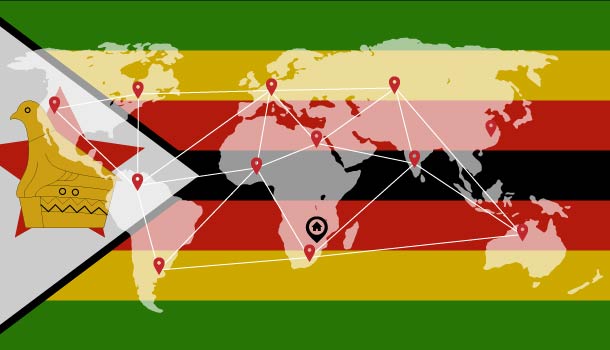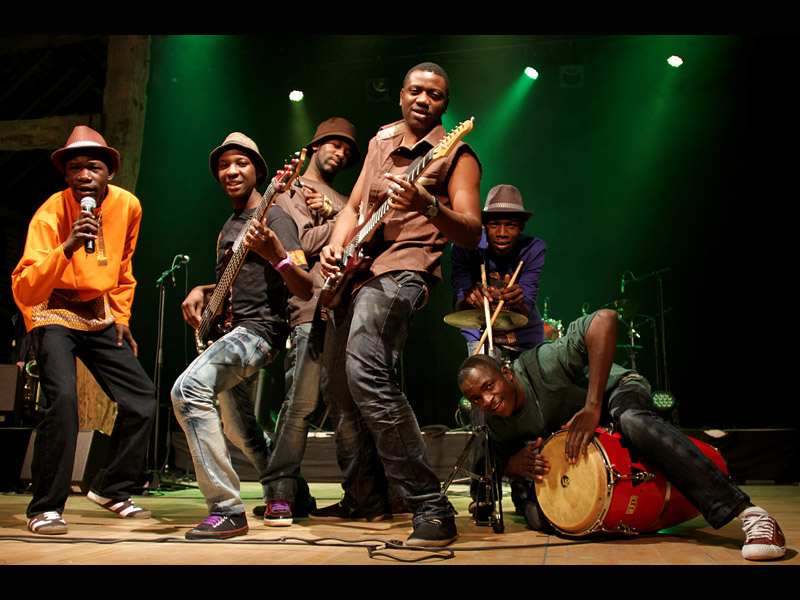If I do the maths, I have, over the last five years, split my existence across nine permanent addresses in five countries on three continents, and travelled to several other places in between.
Just as soon as I was getting the hang of the guttural sounds of German and confidently engaging in general pleasantries, I was on my way back to Zimbabwe to reacquaint myself with the hustle of a nation rebuilding after the tempestuous times of 2008.
But barely months into my re-acclimatisation, I had switched borders for South Africa where a world of intricate hand signals for hailing taxis opened up to me. That and the bunny chow special my workmates and I indulged in on far too many of our lunch breaks.
But before getting too much into that comfort zone, I was learning the codes of gauche English etiquette employed aboard the London tube. “No matter what, do NOT make eye contact,” was the instruction that I tried to dutifully abide by.
My most recent expedition was to the US where I was to acquaint myself with yet another new set of rules. It’s a trunk, not a boot, and enunciated ‘t’s – as in asking for a glass of water – almost always lead to a repetition of the request to ensure that it is really English that you have just spoken.
Between all of my trips, however, I have always touched base with Zimbabwe, living here for a decent number of months at a time.
Thus the question has always been the same upon each return: For how long am I home before I leave again?
Home.
I was seven years old the first time I moved house. A traumatising development for my young mind, the news triggered endless episodes of weeping and fruitless dissuading.
And so it was that on a sunny April afternoon, a giant grey removal truck came through our yard to devour the contents of the only home I had ever known. A home which we proceeded to leave bare, our echoes frightening the lazy specks of dust floating on the spears of sunlight piercing the now-empty space.
Home, for me, was now a place of memory.

Vines of granadilla fruit which twisted their way from our neighbours’ side of the durawall to ours, falling traitorously into our backyard, were no longer to be savoured. Anna, my daily companion and mate from across the fenced side of our property was not to be chatted to anymore, though we promised to start writing each other letters when we could read and write well enough. My mother’s Saturday ritual of cultivating her beds of of nasturtiums, marigolds and petunias was to cease for we moved to a first-storey town apartment with no garden, no granadillas, no Anna.
Home had taught my child’s mind a lot of things.
It was along our home’s long gravelly driveway that I first learnt pain when, aged about four, I pedalled my tricycle too fast down an incline, only to veer off course, overturn and fall into a mess of blood and tears.
Courage was learnt one afternoon, playing outside, when I encountered a snake coiled up between the veranda’s edge and the rain gutter. It was the maid who I would run to in a panic. And it was she who would expertly maneouvre herself around the veranda’s edge, finding the right position from which to smite the reptile’s head with a metal rod that she then used to carry its limp body to the compost heap with, fascinated little me in tow.
Home also taught me about life’s inequalities, particularly as I observed the old man from next door who doubled as maid and gardener for our white neighbours. While my family called him ‘Sekuru’, the madam whose voice always sounded shrilly and insistently from some inner room of the house, preferred to call him ‘Zaka’. I would later learn that this was not even his real name, but merely the name of the area from which he hailed.
I remember once watching him, through the lattice fence, as he meticulously clipped his madam’s lacey underwear onto the clothesline. Upon perceiving me, a look of emasculated shame coloured Sekuru’s features, followed by a command to me to go away and play elsewhere.
Home was the initiator of many lessons I continue to imperfectly assimilate into my being and even today, if I close my eyes, I see and feel it vividly.
With more movements and changes of house throughout my adolescence, I acclimatised to the impermanence of place, even once writing a poem that began with the lines:
“If you start bringing in the boxes
And wrapping and packing up the tea-sets and plates
I’ll know it’s true –
That this is no longer home…”
And perhaps, it is this acceptance that explains my fascination with travel and my frustration with people who fail to appreciate that life is never about fully arriving or leaving.
I left the one place I truly considered my home over 20 years ago. But not fully, for it is a place that still lives within, and a place I recreate, albeit imperfectly, with each new undeserved vine of good fortune that twists it way into my yard, each Anna I encounter whose friendship I accept as being potentially fleeting, even if we do exchange email addresses and promise to stay in touch across continents and time zones.
I am never fully home, but I furnish a semblance of such a dwelling place in every act of courage, in every wince of pain and shame, in every place that allows me to appropriate another room for the house that is my memory.
And with this realisation, the question that has plagued my conscience for far too long has lost its ability to frustrate me.
“How long are you here for?”
The truth is that I am always here; here in the place of memory.
Fungai Machirori is a blogger, editor, poet and researcher. She runs Zimbabwe’s first web-based platform for women, Her Zimbabwe, and is an advocate for using social media for consciousness-building among Zimbabweans. Connect with her on Twitter.





